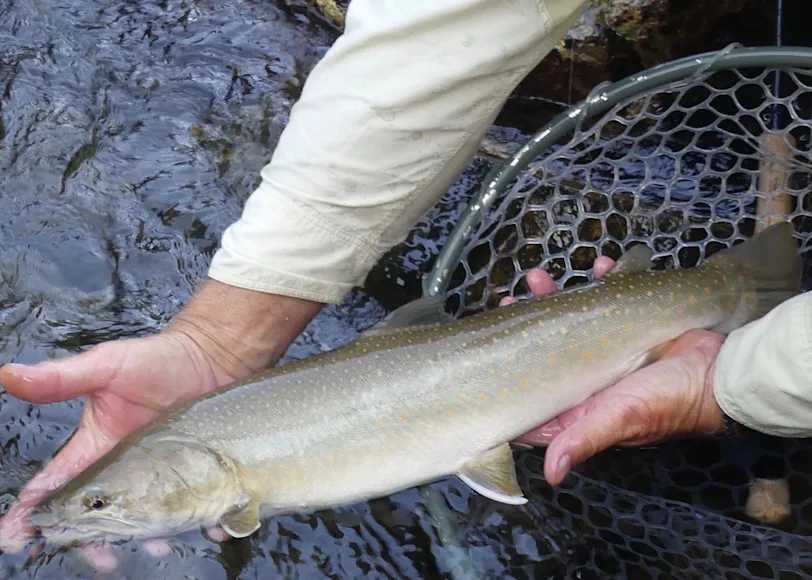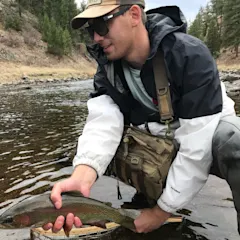The Montana Fish Wildlife & Parks (FWP) Commission recently announced a slew of regulatory changes restricting bull trout fishing in the Treasure State. According to a press release provided to Field & Stream, the FWP Commission passed the regulations in an attempt to address declining numbers of bull trout.
Bull trout are one of the largest native salmonoid species in North America. They are also one of the most imperiled. The species is listed as “threatened” under the Endangered Species Act, and populations have been hammered by habitat degradation, human development, and warming waters.
Montana is one of the only states in the Lower 48 where you can still recreationally fish for bull trout, though intentional angling for the species has already been restricted to just three waterways. The recent regulatory changes will not close recreational bull trout fishing on any of those water bodies, but it will further restrict pressure on two of them.
The season on the South Fork of the Flathead River, a catch-and-release fishery, will be slashed from the third weekened in May to the end of July to just the month of July. On Hungry Horse Reservoir, anglers will only be able to retain one fish per license year instead of two. Additionally, angling bans will be instituted within 300-yard radiuses at the mouths of spawning tributaries in parts of Big Salmon Lake.
“The science tells us that reducing fishing pressure and handling of bull trout will help stabilize the declining population numbers in these waters,” explains FWP Acting Fisheries Division Administrator Jay Pravecek.
The changes come as FWP has reported record-low red counts on the South Fork of the Flathead and in Salmon Creek and other tributaries. Additionally, angler surveys show that 44 percent of bull trout caught in the South Fork have been in the lower portion of the river. The shortened season should give the fish time to migrate further upstream before facing angling pressure.
Read Next: Conservation Partners Spend Millions to Restore Key Bull Trout Habitat in Montana
“These changes are intended to be a proactive measure that maintains limited fishing opportunity but reduces the amount of handling stress on bull trout,” said FWP fisheries biologist Leo Rosenthal. “These fish are important ecologically and culturally, but they are also an important sport fish. We want to maintain opportunity for anglers to pursue this unique native species.”


